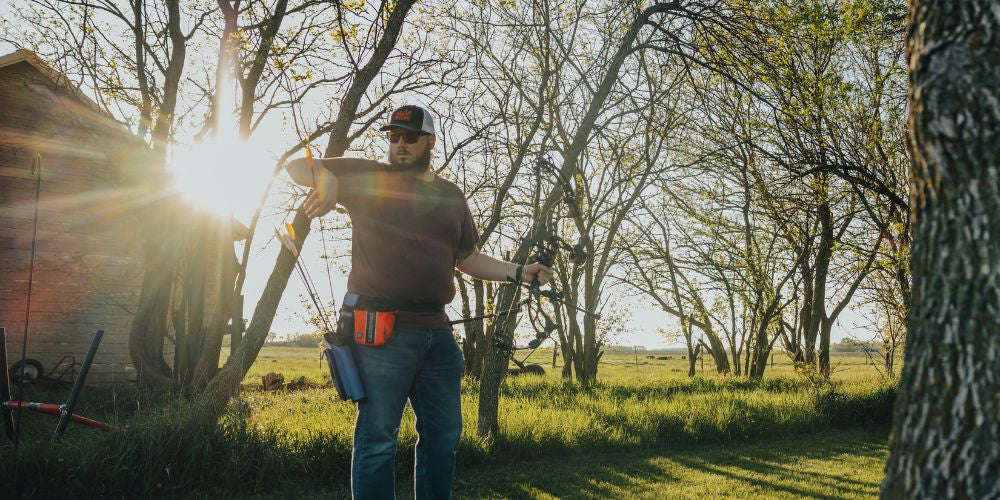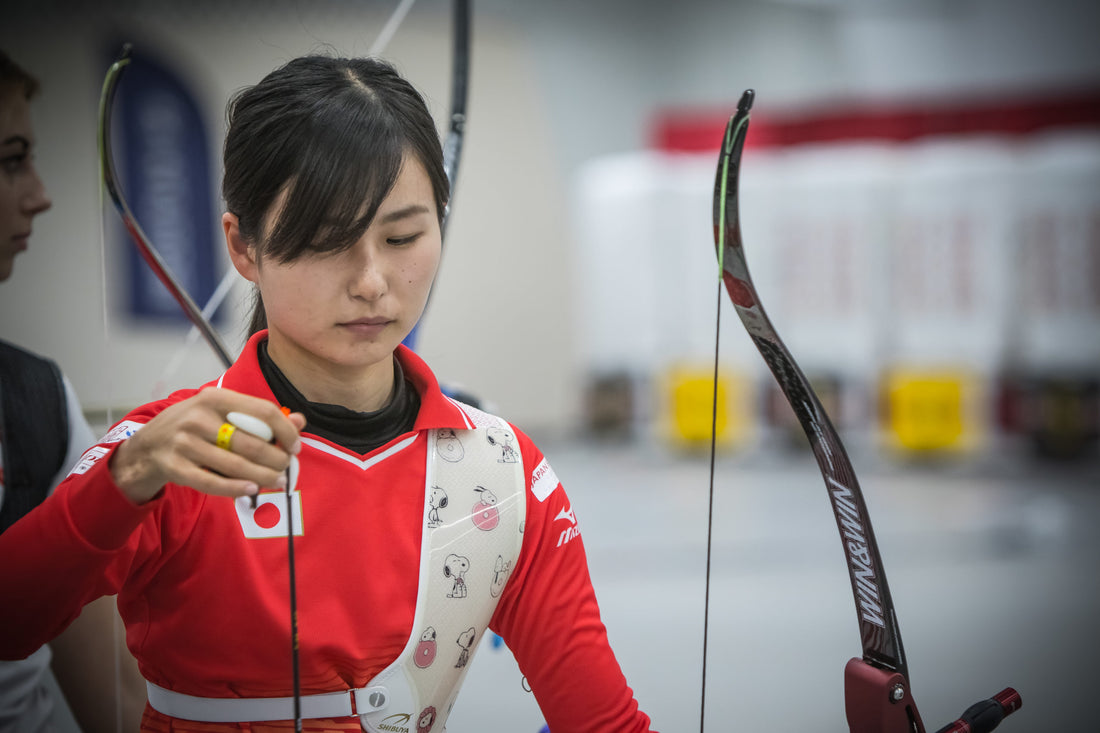As an archer, competition nerves and performance anxiety can be a daunting challenge. The pressure to perform at your best in front of judges, spectators, and other archers can be overwhelming, and the fear of failure can cause physical and mental stress, leading to poor performance. However, there are effective ways to manage these nerves and perform at your best.
Understanding Competition Nerves And Performance Anxiety
Competition nerves and performance anxiety are common challenges that archers face when competing in tournaments or events. Before you can effectively manage competition nerves and performance anxiety, it's important to understand what they are and what causes them.
Competition nerves refer to the nervousness and anxious feelings that you experience before and during a competition. They are a natural response to the stress of competing. Archers may feel anxious or nervous before a competition because they want to do their best and win. Performance anxiety, on the other hand, is the fear or anxiety that arises from the pressure of performing well in the competition. It is a fear of failure that can negatively impact performance. Archers may worry about making mistakes or not performing up to their own or others' expectations, leading to feelings of inadequacy and self-doubt.
These feelings can manifest in physical symptoms such as trembling, sweating, increased heart rate, shortness of breath, and muscle tension. These physical responses are a natural response to stress and pressure and are a part of the body's fight or flight response. However, when these symptoms are not managed effectively, they can cause you to lose focus, make mistakes, and ultimately underperform.
Competition nerves and performance anxiety can impact archers of all levels, from beginners to professionals. However, it is essential to understand that these feelings are normal and can be managed with the right techniques and preparation.
Causes of Competition Nerves And Performance Anxiety As An Archer
As an archer, understanding the causes of competition nerves and performance anxiety can help you develop strategies to manage and overcome them effectively. Below are some explanations of the causes of competition nerves and performance anxiety as an archer:
Lack of Preparation
A lack of preparation is a common cause of competition nerves and performance anxiety. If you haven't had enough practice or training, you may feel unprepared and nervous during competition. Inadequate preparation can also lead to doubts about your ability to perform well, which can increase anxiety. You may worry that you haven't practiced enough or that you don't know how to handle different competition scenarios.
Fear of Failure
Fear of failure is another common cause of competition nerves and performance anxiety. You may worry that you won't perform well, or that you'll make mistakes that could cost you the competition. This fear can lead to negative thoughts and feelings that can affect your confidence and focus. You may also be concerned about disappointing your coach, teammates, or family.
Pressure to Perform

The pressure to perform can also contribute to competition nerves and performance anxiety. If you're competing at a high level or in front of a large audience, you may feel a lot of pressure to perform well. This pressure can increase anxiety and affect your ability to focus and shoot accurately. You may feel that your performance is being judged, and that your success or failure will determine your worth as an athlete.
Past Trauma or Negative Experiences
Past trauma or negative experiences can also contribute to competition nerves and performance anxiety. If you've had a negative experience in the past, such as a bad competition or an injury, you may develop anxiety about competing again. This anxiety can be triggered by similar situations or reminders of the past experience. You may feel that you're reliving the past experience and that you're unable to control the outcome.
Personality Traits
Personality traits can also play a role in competition nerves and performance anxiety. Some people are naturally more anxious or perfectionistic, which can increase their anxiety in competition. Other personality traits, such as competitiveness or a strong desire to succeed, can also contribute to anxiety and pressure to perform. You may feel that your performance reflects your identity or that your self-worth is tied to your success.
Developing Mental Strategies For Managing Competition Nerves And Performance Anxiety
One of the most effective ways to manage competition nerves and performance anxiety is to develop mental strategies. Mental strategies can help you stay focused, calm, and in control during competition. Here are some effective mental strategies for archers:
As an archer, developing mental strategies is crucial to overcoming competition nerves and performance anxiety. Mental strategies are techniques that help you manage your thoughts, emotions, and behaviors during competition. Below are some detailed explanations of how to develop mental strategies to improve your performance as an archer.
Goal Setting
Goal setting is a powerful mental strategy that can help you improve your focus and motivation during competition. Setting specific, measurable, and achievable goals can help you focus on what you want to achieve and develop a plan to achieve it. When setting goals, it is essential to focus on the process rather than the outcome. This means setting goals that are within your control, such as improving your technique or consistency, rather than winning a competition.
Visualization
Visualization is another effective mental strategy that can help you improve your performance as an archer. Visualization involves creating mental images of yourself performing well during competition. By visualizing yourself succeeding, you can build your confidence and reduce anxiety. Visualization also helps you develop a mental blueprint for success, which can improve your technique and consistency.
When practicing visualization, it is essential to use all your senses to create a vivid mental image. Imagine the sights, sounds, smells, and feelings of a successful performance. Use this mental image to create a positive mental state and develop a sense of control over your performance.
Positive Self-Talk
Positive self-talk is a mental strategy that involves replacing negative thoughts with positive ones. Negative self-talk can increase anxiety and reduce confidence, while positive self-talk can improve your motivation and self-belief. To practice positive self-talk, identify the negative thoughts that affect your performance, and replace them with positive affirmations.
For example, if you're feeling nervous about a competition, you can replace negative thoughts such as "I'm not good enough" with positive affirmations such as "I've trained hard and have the skills to succeed." By focusing on positive self-talk, you can develop a more optimistic outlook and improve your mental state.
Breathing Techniques

Breathing techniques are a simple but effective mental strategy that can help you reduce anxiety and improve your focus during competition. By focusing on your breathing, you can slow down your heart rate and reduce tension in your body. Breathing techniques can also help you stay present and focused on the task at hand.
To practice breathing techniques, take deep breaths in through your nose and out through your mouth. Focus on the sensation of your breath as it moves in and out of your body. You can also count your breaths to help you stay focused and relaxed.
Managing Distractions
Managing distractions is another essential mental strategy for archers. Distractions can disrupt your focus and increase anxiety during competition. To manage distractions, it is essential to develop a pre-competition routine that helps you stay focused and relaxed. You can also use mental imagery to visualize yourself blocking out distractions and staying focused on your performance.
In addition, it's essential to identify potential distractions before the competition and develop strategies to manage them. For example, if you're competing in a noisy or crowded environment, you can wear earplugs or headphones to block out distractions. You can also use mental strategies such as positive self-talk to stay focused and motivated.
Physical Strategies For Managing Competition Nerves And Performance Anxiety
In addition to mental strategies, there are physical strategies you can use to manage competition nerves and performance anxiety. Physical strategies are another important aspect of improving performance as an archer. These strategies can help you feel more prepared physically, which can translate to improved performance.
Proper Training
Proper training is key to managing competition nerves and performance anxiety. Ensure you have practiced enough and are comfortable with the equipment you are using. Ensure your posture and form are correct, and that you have a training plan that is tailored to your abilities and goals. Knowing that you are well-prepared can help boost your confidence and reduce anxiety.
Below are various aspects of proper training for archers.
Technique

Technique is one of the most important aspects of proper training for archers. Archery is a sport that requires a high level of precision and accuracy, and proper technique is essential for achieving consistent results. Proper technique involves several components, including stance, grip, anchor point, draw, and release.
Archers should work with a qualified coach to develop and refine their technique. A coach can provide feedback on proper form, suggest adjustments to improve accuracy, and help archers develop good habits and avoid bad ones.
Equipment
Equipment is another critical aspect of proper training for archers. Archers should use equipment that is appropriate for their skill level, body type, and shooting style. Equipment includes the bow, arrows, release aid, sight, and stabilizers.
Archers should work with a qualified equipment specialist to ensure that their equipment is properly fitted and tuned. Properly fitted equipment can improve accuracy, stability, and consistency, while poorly fitted equipment can lead to poor performance and injury.
Practice
Practice is essential for archers who want to improve their performance. Regular practice helps archers develop muscle memory, improve technique, and build confidence. Archers should practice regularly, ideally several times per week.
Archers should also vary their practice routine to include different types of shots, distances, and conditions. This helps archers develop the skills needed to perform well under a variety of circumstances.
Warm-Up Routine
Having a warm-up routine is an effective way to manage competition nerves and performance anxiety. A warm-up routine can help you get physically and mentally prepared for competition. A good warm-up routine should include stretching, light cardio, and practice shots. This can help you get in the right mindset and feel confident and ready to compete.
Seeking Professional Help To Manage Competition Nerves And Performance Anxiety
If you're struggling with competition nerves and performance anxiety, seeking professional help can be beneficial. A sports psychologist or mental health professional can provide guidance and support to help you manage your anxiety and improve your performance. They can also help you develop personalized mental and physical strategies that work best for you.
Cognitive-Behavioral Therapy
Cognitive-behavioral therapy (CBT) is a type of therapy that can help manage anxiety and improve performance. CBT involves identifying negative thoughts and behaviors that contribute to anxiety and replacing them with more positive and effective ones. A therapist can help you identify any negative thoughts or behaviors you may have related to competition and develop strategies to replace them with more helpful ones.
Relaxation Techniques

Relaxation techniques such as progressive muscle relaxation, meditation, and guided imagery can be helpful for managing anxiety and improving performance. These techniques can help you relax your body and mind, reduce stress, and improve focus. A therapist can teach you how to use these techniques effectively.
Developing a Support System To Manage Competition Nerves And Performance Anxiety
Having a support system can also be beneficial for managing competition nerves and performance anxiety. Your support system can include friends, family members, coaches, and teammates who can provide encouragement and support when you're feeling anxious or nervous.
Talk to Your Coach
Talking to your coach can be helpful for managing anxiety and improving performance. Your coach can provide guidance and support, help you identify areas for improvement, and provide constructive feedback. They can also help you develop a training plan that is tailored to your abilities and goals.
Connect with Other Archers

Connecting with other archers can also be helpful for managing competition nerves and performance anxiety. You can join a local archery club or online community to connect with other archers who understand the challenges you're facing. You can share tips and strategies, offer support, and learn from others' experiences.
Conclusion
Managing competition nerves and performance anxiety as an archer can be challenging, but it's possible with the right strategies and support. Developing mental strategies such as visualization, positive self-talk, and breathing exercises, as well as physical strategies such as proper training and warm-up routines, can help you feel more prepared and confident during competition. Seeking professional help, developing a support system, and connecting with other archers can also be helpful. Remember, managing competition anxiety as an archer is a process, and it may take time and practice to find what works best for you.
 cust@legendarchery.com
cust@legendarchery.com 302 503 5767
302 503 5767 Sauk Village IL 60411
Sauk Village IL 60411


